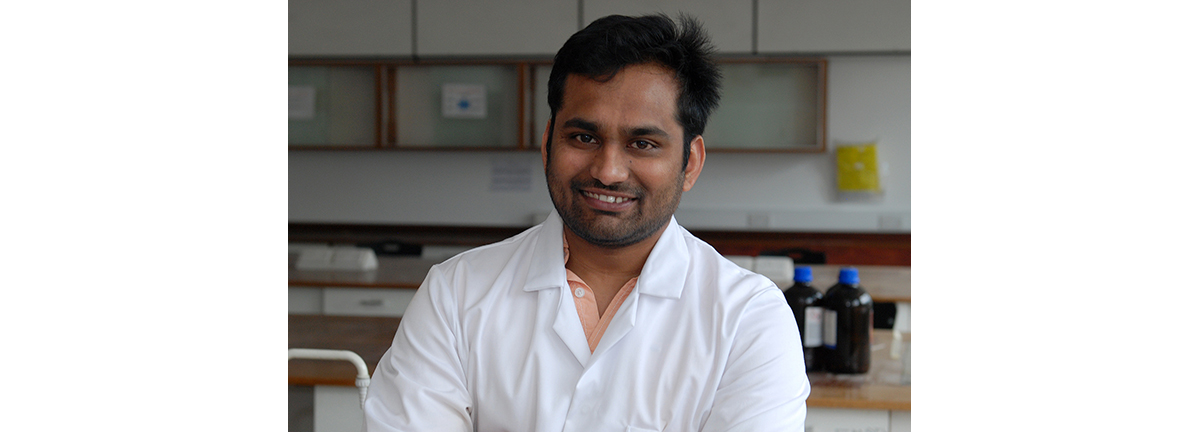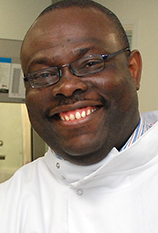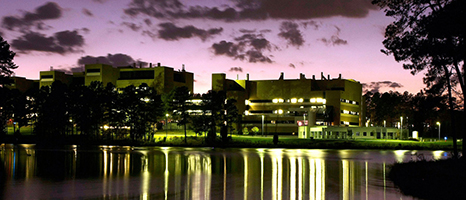Major U.S. neurobiology lab snaps up leading Hudds PhD researcher

Mon, 06 Mar 2017 15:43:00 GMT
Indian-born Ravikanth Velagapudi has already had a number of peer-reviewed articles published and will now join the National Institute of Environmental Health Sciences in North Carolina
 DURING his PhD studies at the University of Huddersfield – where he investigated the role that natural products could play in countering neurological disease – Indian-born Ravikanth Velagapudi racked up an exceptional number of published articles and international conference presentations. This track record has helped him land a post at a major research institute in the USA.
DURING his PhD studies at the University of Huddersfield – where he investigated the role that natural products could play in countering neurological disease – Indian-born Ravikanth Velagapudi racked up an exceptional number of published articles and international conference presentations. This track record has helped him land a post at a major research institute in the USA.
Dr Velagapudi – who has now completed his doctoral project – relocated to Huddersfield so that he could be supervised by Dr Olumayokun Olajide (pictured right), a senior lecturer in pharmacology whose research includes the use of natural compounds in treating conditions such as Alzheimer’s and Parkinson’s disease.
Now, for his first post-doctoral post, Dr Velagapudi has been recruited by the National Institute of Environmental Health Sciences (pictured below), at its neurobiology lab in North Carolina. He was offered the position after his interviewer – in a conversation conducted via Skype – said that he was deeply impressed by the number of peer-reviewed articles authored or co-authored by Dr Velagapudi.
He has seven to his name, in specialist journals that include Molecular and Cellular Biochemistry, Molecular Neurobiology and the European Journal of Nutrition. This is in excess of the quantity usually achieved by PhD candidates. Dr Velagapudi has also presented his research at conferences in six different countries.
 His focus has been on Tiliroside, a glucose derivative mainly found in berry fruits. After investigating a range of natural compounds and their potential in stemming neuroinflammation, Dr Velagapudi was most impressed by the results he was achieving with Tiliroside, after testing it on BV2 microglia, a cell found in the brain.
His focus has been on Tiliroside, a glucose derivative mainly found in berry fruits. After investigating a range of natural compounds and their potential in stemming neuroinflammation, Dr Velagapudi was most impressed by the results he was achieving with Tiliroside, after testing it on BV2 microglia, a cell found in the brain.
Born in Andhra Pradesh, India, Dr Velagapudi’s first degree was in pharmacy at Rajiv Gandhi University of Health Sciences, Bangalore. Then he came to the UK for Master’s research, in which he investigated the anti-diabetic properties of the Pandan leaf. This interest in the pharmaceutical potential of natural compounds led him to Dr Olajide at the University of Huddersfield, where he was awarded a fee-waiver scholarship for his doctorate.
Dr Velagapudi is drawn to the use of natural compounds because they can be the basis of drugs that are free of side effects, one of the major pharmaceutical challenges. Also, he drew inspiration from the widespread use of “folklore medicines” in his native India, and there is the prospect that drugs based on natural compounds could be much more affordable.
When he takes up his post in the USA, Dr Velagapudi will be based in a lab using sophisticated techniques to investigate conditions such as Alzheimer’s and Parkinson’s. But he aims to continue his research interest in the potential of natural compounds and to keep up his link with Dr Olajide at the University of Huddersfield.







